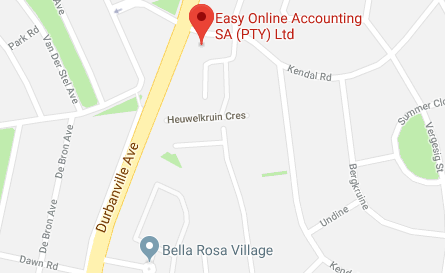
Setting Up a Branch in South Africa
You have two options:
- Incorporate a South African Pty Ltd, open an RSA business bank account and then run your payroll via your own company in South Africa.
We recommend this option if you are planning to do business in RSA, so have clients based in RSA.
Here are a few things to consider with this option:
- You must be a South African citizen (there are different requirements if you are a UK resident setting up a business in RSA)
- You need to have a utility bill containing an address in South Africa
- You need to consider transfer pricing; the RSA business needs to be set up to ultimately make a profit (RSA Corporation Tax rate is 28%)
- Carefully consider all VAT implications, especially if the UK company provides financial services (or any other VAT exempt supplies in the UK) – the UK company can be liable for an extra 20% VAT in the UK because of the VAT Reverse Charge.
- If the RSA company is a subsidiary of an overseas company, then consolidated financials need to be produced.
- If you are only looking to run payroll in South Africa, then the alternative option is setting up a branch for the overseas company in South Africa.
How we can help with this:
- We will register the branch with SARS.
- The branch will be registered for PAYE, UIF and SDL in South Africa.
- We also need to appoint a South African representative. If you are a South African citizen and you have a utility bill in your name in RSA, you can be the representative, otherwise we may need to act as a representative.
- We have an agreement with a local bank that allows us to open a ZAR bank account for the branch.
Our services will include the following:
- CIPC – External Company Registration
- CIPC – Annual Return Filings – Yearly Submission via CIPC Portal
- SARS – Registered Representative Update
- PAYE Registration – Monthly EMP201 Submissions & Bi-Annual EMP501 Submission (IRP5’s)
- UIF Registration – Monthly Declaration Submissions via a Payroll System
- Compensation Fund Registration
- We will also issue you with a standard RSA employment contract that needs to be signed by your employees.
The Monthly Process:
- You will need to transfer in advance the necessary funds into your ZAR bank branch account
- We will then run payroll, calculate the taxes due, etc.
- We will issue payslips to your employees every month.
- We will pay the employees, and pay PAYE, UIF and SDL taxes to SARS as and when they become due.
- We will also transfer our fee from the branch’s RSA bank account as and when this becomes due.
Summary of how taxes work in RSA:
Payroll taxes are withheld monthly and paid over to SARS by the 7th of the month following the payroll month (e.g., January payroll taxes are due on the 7th of February)
- PAYE
Deducted based on the individual tax sliding scale.
- Skills development levy (SDL)
Calculated at 1% of employees gross salary. This is a company contribution.
- Unemployment Insurance Fund (UIF)
Calculated at 2% of the employee’s gross salary, limited to a monthly salary of R17 712.00
- Of the 2%, 1% is an employee contribution deducted from their salary.
- The other 1% is a company contribution.
(e.g., with a monthly salary of R20 000 the employee contribution is R177.12 and the company contribution is R177.12 = total contribution of R354.24
Brief Summary of Compensation Fund:
The Compensation fund, known as Workmen’s Compensation, is a mandatory contribution if you have employees appointed in South Africa.
Calculated at a rate set by the government based on risk of your industry. In this case the rate for Admin Consultants (Accountants/Auditors etc.) is set as follows:
- 2022 Year Assessment – 0.16% of total Gross Payroll for the year
- 2023 Year Assessment – 0.17% of total Gross Payroll for the year.
The 2023 OID Cap Limit is R529,264 per annum – you will only contribute to the fund the stipulated % on maximum earnings of R529,264 per annum.
The ROE return is submitted ever year by April/May, as an actual return for the previous year, and a provisional return for the upcoming/current year.
Other points
For UK VAT purposes, care must be taken if supplies are made by the branch to the UK company, as opposed to just being a payroll function for an employee of the UK company.
If supplies were being made from the branch, as an overseas business with a Permanent Establishment (PE) in RSA, the place of their supplies to the UK company of running the RSA based employee’s payroll, will be the UK where the business receiving the service is based. And then VAT Reverse Charge would need to be applied in the UK company’s VAT return, on payments made to the RSA branch.
Get in touch with EOAC if you’d like to find out more – we’re happy to answer any questions you may have.


